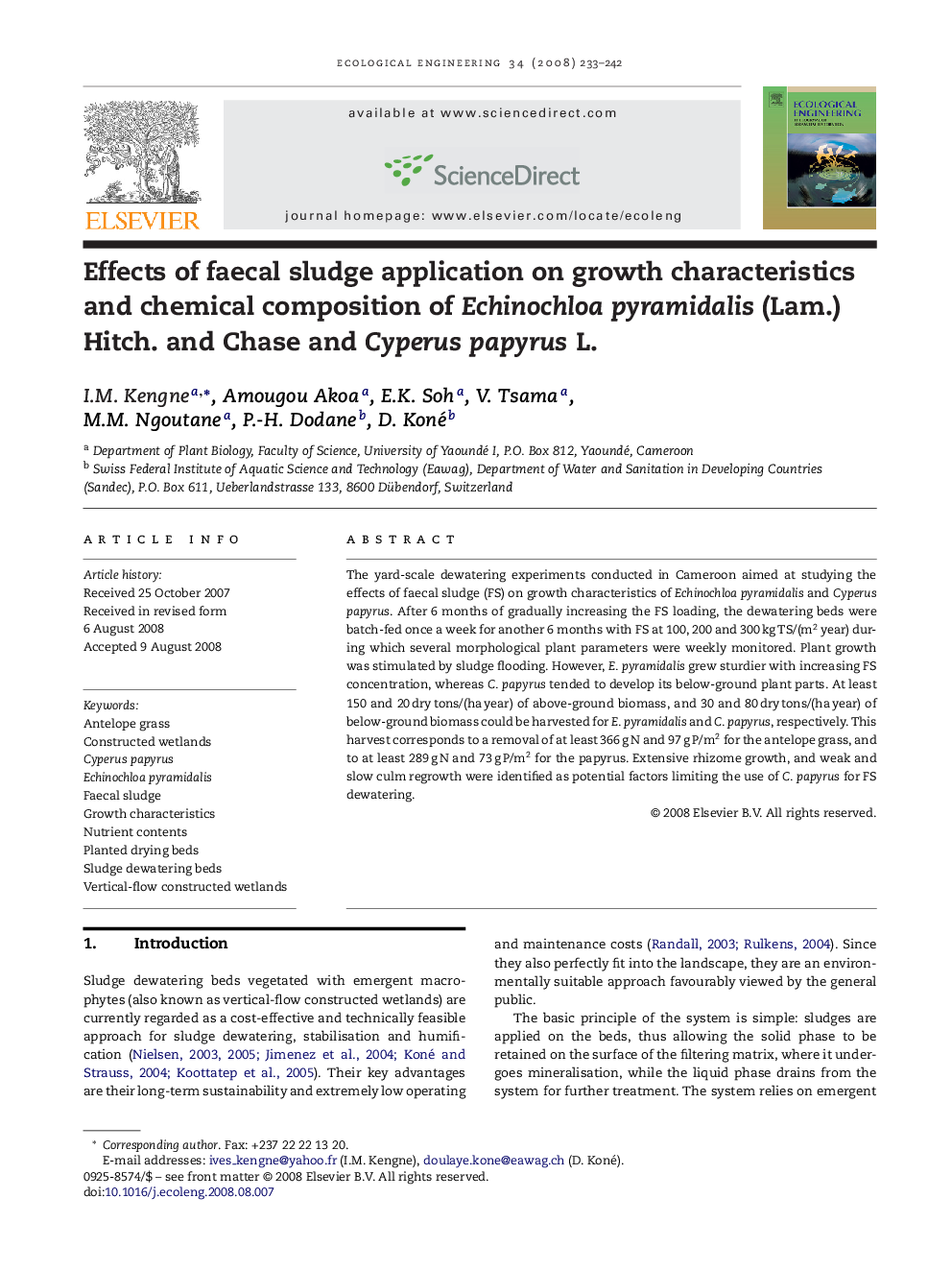| Article ID | Journal | Published Year | Pages | File Type |
|---|---|---|---|---|
| 4390706 | Ecological Engineering | 2008 | 10 Pages |
The yard-scale dewatering experiments conducted in Cameroon aimed at studying the effects of faecal sludge (FS) on growth characteristics of Echinochloa pyramidalis and Cyperus papyrus. After 6 months of gradually increasing the FS loading, the dewatering beds were batch-fed once a week for another 6 months with FS at 100, 200 and 300 kg TS/(m2 year) during which several morphological plant parameters were weekly monitored. Plant growth was stimulated by sludge flooding. However, E. pyramidalis grew sturdier with increasing FS concentration, whereas C. papyrus tended to develop its below-ground plant parts. At least 150 and 20 dry tons/(ha year) of above-ground biomass, and 30 and 80 dry tons/(ha year) of below-ground biomass could be harvested for E. pyramidalis and C. papyrus, respectively. This harvest corresponds to a removal of at least 366 g N and 97 g P/m2 for the antelope grass, and to at least 289 g N and 73 g P/m2 for the papyrus. Extensive rhizome growth, and weak and slow culm regrowth were identified as potential factors limiting the use of C. papyrus for FS dewatering.
